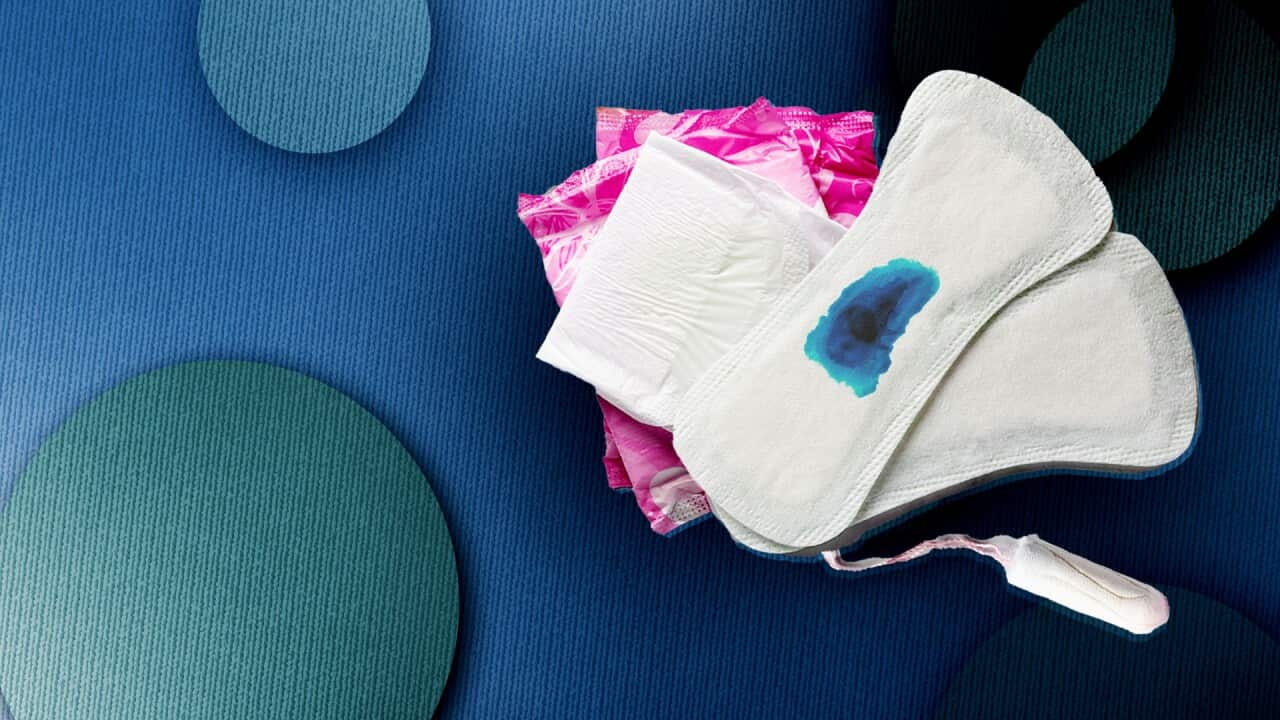Key Points
- A study has for the first time examined the absorption of period products using human blood.
- Manufacturers of period products have used saline or water to test the absorbency capacity.
- Across 21 products, the study's authors found "considerable variability" in the maximal capacity to absorb blood.
Women's health advocates have welcomed the findings of a study testing period products - for the first time - using human blood over saline solutions.
They say the study highlights a broader problem, with women vastly overlooked when it comes to adequate and effective baseline testing of women's health products.
The study, released in early August in the , used packed red blood cells, which is blood after plasma and platelets are removed, rather than period blood.
The study's authors tested 21 period products on the maximal capacity to absorb blood. They found "considerable variability" among the products. The menstrual discs had the greatest capacity (61 mL) while period underwear held the smallest volume (2 mL).
Comments about the study have since gone viral on social media, with outraged women questioning why it had taken this long to test menstrual products with human blood.
The study raises questions about the method of determining what is considered heavy bleeding in women.
The study is "mind boggling" and a prime example of the lack of adequate research on women's health issues, says Dr Sarah White, CEO of Jean Hailes for Women’s Health and member of the Women’s Advisory Council.
"Tampons were invented nearly 100 years ago," she said.
"The fact that we are nearly 100 years along the path, and only now someone is finally really carefully investigating how to determine if someone has heavy menstrual bleeding or not using everyday sanitary products is shocking."
"I would argue that, based on studies like this ... every single medical condition that affects women needs to be reassessed."
White says many women may be experiencing heavy bleeding, but they suffer in silence.
"Some women think it's entirely acceptable to bleed through a tampon every hour for several hours and that's just normal for them."
"We would say, it’s not and we can do something about it."











